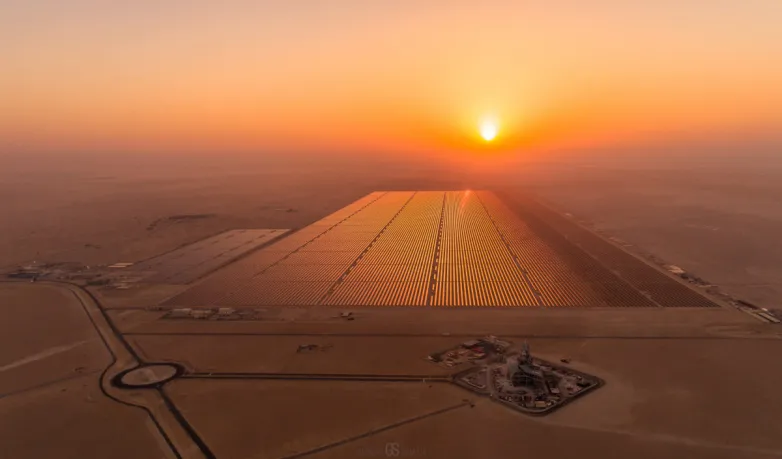Dubai’s 900 MW solar tender sees lowest bid of $0.0169/kWh
Oct 10, 2019 09:10 PM ET
- The offer was apparently submitted by Saudi energy giant ACWA Power, which refused to confirm the bid when asked by pv magazine. The second lowest bid – $0.0175/kWh – was reportedly submitted by a consortium formed by Emirati developer Masdar, French utility EDF and Chinese PV panel maker JinkoSolar.

“We have no comment to make on the matter at this time,” the press office of Saudi energy company ACWA Power told pv magazine when asked to confirm it was the lowest bidder in the tender for the fifth phase of the huge Mohammed bin Rashid Al Maktoum Solar Park. That lowest solar electricity price came in at $0.0169/kWh.
According to RenewEconomy, the second lowest bid – $0.0175/kWh – was submitted by a consortium formed by UAE-based developer Masdar, French utility EDF and Chinese panel manufacturer JinkoSolar.
The winning bid appears to have come within a whisker of setting a new world record low price for solar energy just over ten weeks after French developer Akuo Energy bid €0.0147/kWh ($0.016) for 150 MW of solar capacity in Portugal’s first solar capacity auction.
The Dubai Electricity and Water Authority (DEWA) will award a 25-year power purchase agreement to the successful bidder and will hold a 60% stake in the projects.
ACWA is already constructing phase II of the 5 GW solar field with Spanish engineering services provider TKS and EDF began work on the 800 MW PV section of Phase III in 2017, with a 200 MW section going online in May 2018. That part of the project will sell power to DEWA for $0.029/kWh.
Phase IV, originally intended to be a 700 MW concentrating solar power plant and later expanded with 250 MW of PV, is being developed by ACWA. The PV portion of that phase will sell power for $0.024/kWh. For the concentrating solar section, ACWA and DEWA have agreed a rate of $0.073/kWh.
The Mohammed bin Rashid Al Maktoum Solar Park, which is also set to include large scale storage and hydrogen facilities, is scheduled for completion by 2030.
Also read

